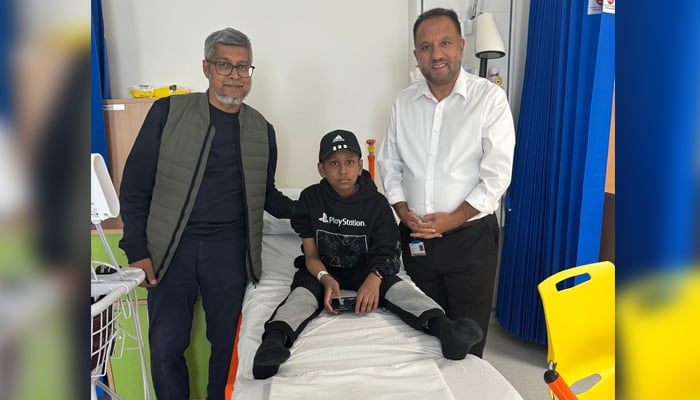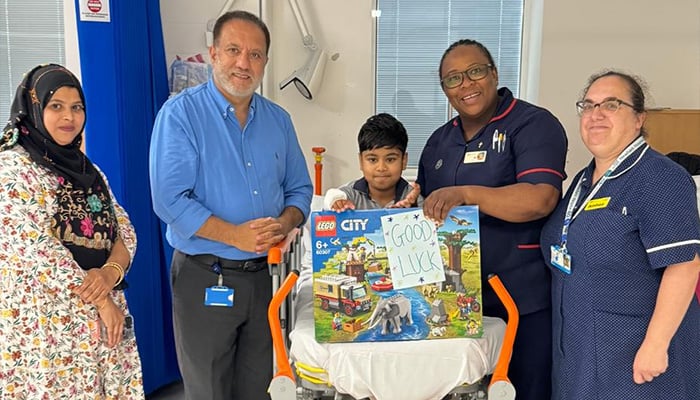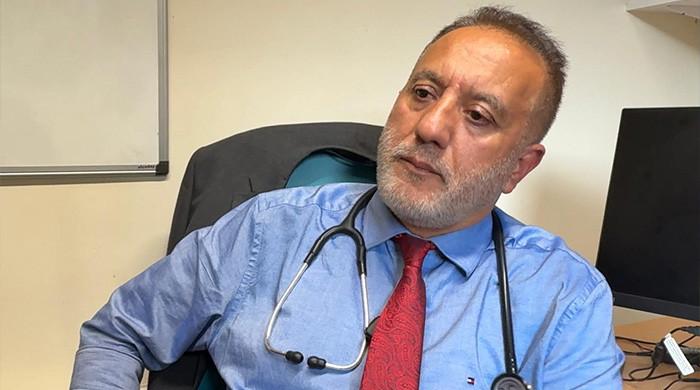London: The British-Pakistani pediatric consultant, Dr. Sher Sher Bahadur Anjum, has successfully treated two young patients with talaasemia through gene therapy, transforming their lives to complete normality, for the first time in the United Kingdom.
Dr. Anjum, who specializes in hematology (blood disorders) at the Newham hospital in East London, part of Barts Health NHS Trust, directed a team of caregivers at the Newham hospital to treat the two young people, now 11 and 13 years old, of Bangladesh’s history.
Talasemia is a genetic condition that is more common in those who are Pakistani, Indians and Bangladeshi. It is a blood disorder, and people with talaasemia have low levels of iron and oxygen in the body. This can make them severely anemic: tired, breathless and pale.
To treat their talaasemia, the two patients had to go to the hospital for blood transfusions every month, which had a great impact on their quality of life. The only cure is a stem or bone marrow transplantation, but this is not very often done due to the risks involved, and it may be difficult to find donors.

Thanks to a new innovative gene therapy administered by Dr. Anjum and his team, working with Great Ormond Street Hospital (GOSH), the two young children, now 11 and 13 years old, now live healthy and happy lives without more hospital visits or regular blood transfusions.
Before receiving the 4 -week treatment in Gosh, Dr. Anjum and the Medical Care Team at the Newham hospital did an extensive therapy care for the gene for three months, which included blood tests, vaccines and maintenance of the correct levels of hemoglobin. His attention in Newham also continued long after treatment, with monitoring, blood count and control the side effects.
When Dr. Anjum approached families for the first time, they both hesitated to start this therapy, since it was new and requires a stay in the longest initial hospital. However, after almost 12 months of speaking, listening and answering their questions and concerns, they reassured them to start treatment for their children.

Now their lives have changed forever thanks to treatment, and they want to encourage other parents from southern Asia to assume the offer if doctors find them eligible.
Dr. Anjum, who originally studied in the Astoria village of Gilglit Baltistan and then Abbottabad Medical College (AMC) told PakGazette News: “Gene therapy is a new treatment that aims to solve the problem at their root. Doctors carry some of the blood stem cells of their son, add a healthy copy of the gene that is needed to do to do hemoglobin and then Return these cells to your child’s special preparation.
“My two patients had grown up knowing anything more than hospital and transfusions. His parents had assumed years of emotional and practical struggles, doing everything possible to keep their children well. When Barts Health NHS Trust was asked to identify patients for the new gene therapy program, we saw a unique opportunity over time.
“But convincing families was not simple. Gene therapy is new, complex and terrifying for parents who have already supported so much. In understandably, both families doubted and feared the risks. It took almost a year of continuous conversations, tranquility and construction of confidence before agreeing. In the hospital of Gran Ormond Street, they gave me an honorary contract, so I could support the children and their families before, during the procedure. of these families carried them.
“Six months later, the transformation is extraordinary. These children, once tied to hospital beds and transfusion schedules, now live normal lives without the need for blood transfusions. His energy has returned, his futures are brighter and their families have finally been discharged from the endless cycle of hospital visits.”
Dr. Anjum said that for the first time, families affected by talasia can imagine a future in which their children are free from the shadow of chronic disease. “It shows the power of gene therapy to convert despair into hope, and highlights what collaboration within the NHS can achieve when we put patients already families in the center of care.”




